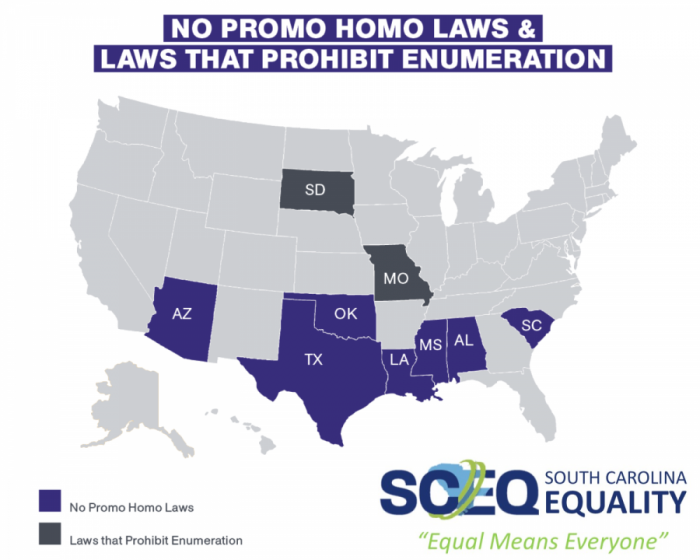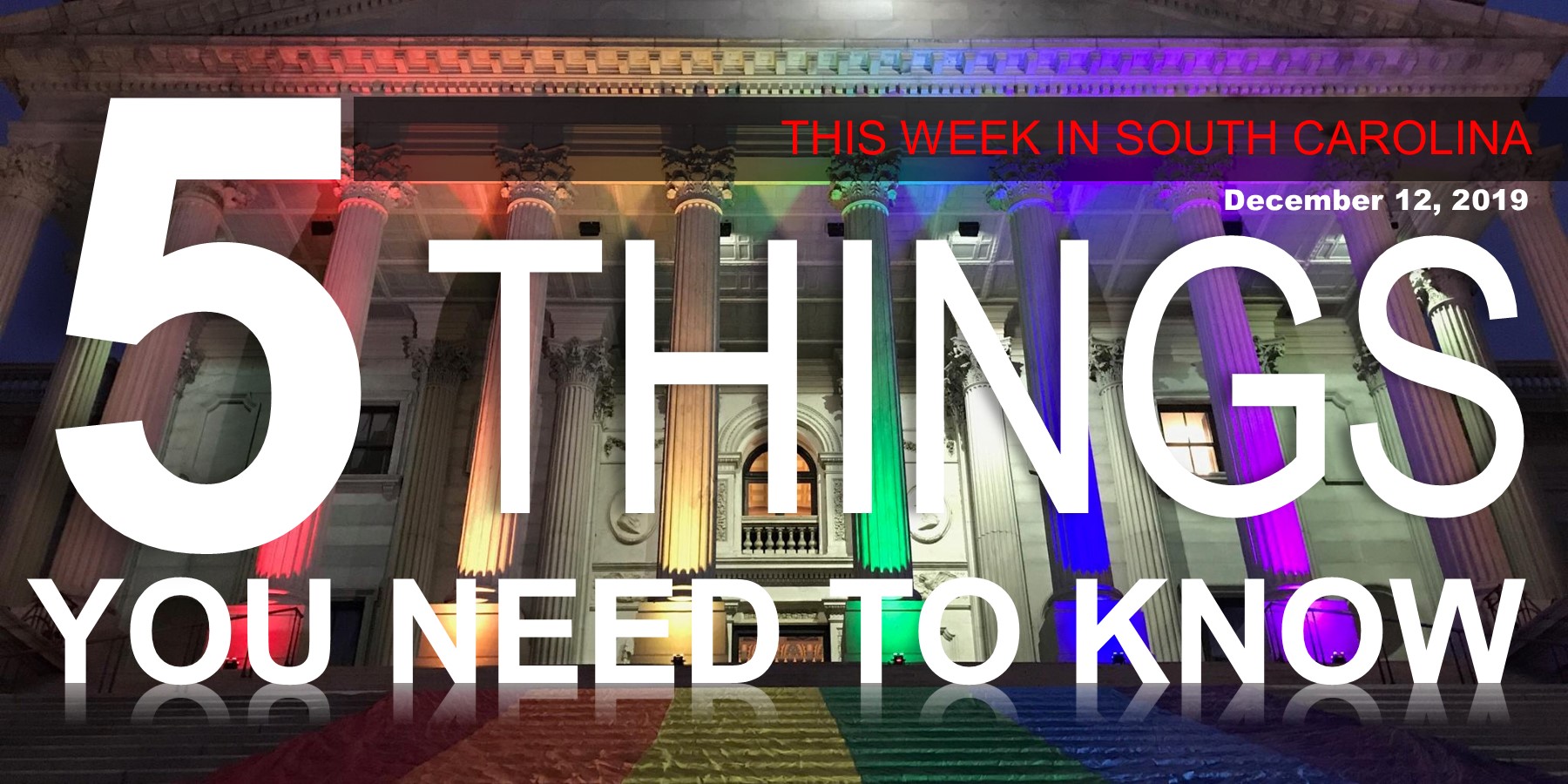Identification Documents
Identification Documents
IDENTITY DOCUMENTS IN S.C.
Carrying identification that reflects your genuine, real-world self is basic—whether you’re transgender or not. That’s what IDs are for. So imagine if every time you tried to travel, open a bank account or start a new job, someone harassed you about your ID. Is it fake? Are you pretending to be someone you’re not?
Sign Up. Receive Email Updates!
Get notified about important news, action alerts and upcoming events.
Donate to SC Equality TODAY!
Make your contribution today and join a grassroots force of supporters standing together for lesbian, gay, bisexual, transgender and queer equality.
What is the process for changing my identification documents to reflect my true identity?
Court Process for Name Change
- In South Carolina, an important first step in changing one’s identification documents begins with pursuing a legal name change. This first step makes it easier to change the federal and state document outlined in this fact sheet.
- The requirements for legal name change are outlined in South Carolina Code Section 15-49-10.
- Resource Guide for the Name Change Process in SC
Federal Documentation
- Social Security Information (Legal Gender Change)
- As of June 2013, the Social Security Administration implemented a policy which allows for a transgender person to change their gender on their Social Security records by submitting either government-issued documentation reflecting a change, or a certification from a physician confirming that they have had appropriate clinical treatment for gender transition. This policy no longer requires that an individual have gender reassignment surgery to change their documentation.
- For more about this process, please see the National Center for Transgender Equality’s detailed guide regarding the specifics of this change.
- Passport (Legal Gender Change)
- Similar to the Social Security Administration, the US State Department no longer requires that an individual undergo Gender Reassignment Surgery (GRS) in order to have their gender marker changed on their passport.
- Understanding the New Passport Gender Change Policy
State Documentation
- Birth Certificate (Legal Gender Change)
- Statute: S.C. Code Ann. § 44-63-150 (2005)
- Administrative Code: S.C. Code Ann. Regs. 61-19 (2006)
- Although not explicitly addressed by statute or administrative code, South Carolina will issue an amendment as an attachment to the original birth certificate.
- Birth Certificate Policies by State
PLEASE NOTE: South Carolina Equality has received conflicting information in regards to this issue. A court order may be needed in order to make this change. According, obtaining a court order may require an additional statement from a physician indicating treatment has been completed. As with any information provided in this fact sheet, it is important to consult a lawyer for legal advice regarding your particular situation.
- Driver’s License (Legal Gender Change)
- South Carolina – “The general accepted method to change one’s gender is to present medical documentation that gender has been changed and a court order to the local DMV.”
- Driver’s License Policies by State
PLEASE NOTE: The South Carolina DMV have indicated to South Carolina Equality staff that medical documentation alone is insufficient to make the change. In order to issue an amended driver’s license, a court order or updated birth certificate are required. Please see above for more information on obtaining an updated birth certificate.
South Carolina Name Change Laws
To obtain a legal name change in South Carolina, an applicant must submit a petition to the court. The applicant must be fingerprinted and undergo a background check for criminal convictions or financial obligations. The court may require a hearing. No publication is required. (S.C. Code Ann. § 15-49-10 to § 15-49-50).
South Carolina Name Change Guide and forms – created by Ellis Bellew, Gender Benders.
Please start with the appropriate instruction sheet. The top link is instructions for mac users. The second link is instructions for PC users. From there you can review the example name change packet. Then open up “SC full name change packet 1” and fill out the preliminary information sheet. That sheet will auto fill your information in the forms where they belong. After each section you will find a check list that will provide instructions with what to do with each form.
If you need help navigating your name change please email us at info@scequality.org. We will be happy to help you get your paperwork together.
SC NAME CHANGE INSTRUCTIONS FOR MAC
SC NAME CHANGE INSTRUCTIONS FOR PC
South Carolina Drivers License Policy & Procedures
In order to update name and/or gender on a South Carolina ID, the applicant must submit (1) a Notification of Change of Address or Name form and a court order certifying the name change (if applicable) and/or (2) medical documentation of gender change and a document demonstrating the gender change, such as a birth certificate or court order. The South Carolina Department of Motor Vehicles addresses name change here. Applicants must notify the DMV of a legal name change within 10 days of the name change.
South Carolina Birth Certificate Laws
South Carolina does not have a specific gender correction provision, but the general statute governing amendments to birth certificates is S.C. Code Ann. § 44-63-150. Amendments to a birth certificate will be visible. To apply for an amended birth certificate the applicant should submit a birth certificate request form, a copy of the individual’s photo ID, a certified copy of the court ordered name and/or gender change, and payment of any applicable fees. On the purpose line of the request form, the applicant should indicate the purpose is a name and /or gender change.
PASSPORTS
In June 2010, the State Department announced a new policy to issue passports that reflect a person’s current gender when either a previous passport or other personal documentation presented by an applicant reflects a different gender. Under this policy, a transgender person can obtain a passport reflecting his or her current gender by submitting a certification from a physician confirming that he or she has had appropriate clinical treatment for gender transition. This policy replaces the Department’s old policy, which required documentation of sex reassignment surgery. In January 2011, the State Department made further improvements to its new policy.
Understand the Passport Gender Change Policy
Can I Get a Passport With My Current Gender?
Under the current policy, you can obtain a full ten-year passport with an updated gender marker if you have had clinical treatment determined by your doctor to be appropriate in your case to facilitate gender transition. No specific details are required about what type of treatment is appropriate for you.
Do I Need a Physician’s Certification?
Under the current policy, a physician certification is required if the documents you submit with your application, which may include a prior passport, driver’s license, birth certificate, or other documents, do not all reflect the correct gender. If all the documents you submit with your application reflect the correct gender, you may not need to submit a physician certification. See the application instructions below for more details.
Who Can Write a Letter to Certify Appropriate Treatment?
You will need a letter from a licensed physician with whom you have a doctor-patient relationship and who is familiar with your transition-related treatment. This may be any physician who is familiar with your treatment, including a primary care physician or specialist.
What Should the Physician Certification Include?
The State Department has provided the following model letter for physician certifications. All certifications must be on the physician’s office letterhead and include all of the information seen here, including the physician’s license or certificate number. You should ask your physician to use this letter and not give additional personal health information that is not included here.
You can download a sample physician letter here.
What is “appropriate clinical treatment for gender transition”?
People’s gender transition needs vary, and treatment options are decided between individuals and health care professionals on a case-by-case basis. The phrase “appropriate clinical treatment for gender transition” is meant to capture a range of treatments that may be appropriate, in each individual case, to facilitate gender transition. Clinical treatment methods are outlined in the World Professional Association for Transgender Health Standards of Care, and treatment can include psychotherapy, changes in gender expression and role, hormone therapy, or surgery, or any combination thereof. No specific treatment is required, and details of your treatment need not be provided. In fact, NCTE encourages you and your provider to only state in the letter that you have had appropriate clinical treatment for gender transition. Details about surgery, hormone treatment, or other treatments are unnecessary and not helpful.
The State Department will issue a limited, two-year passport with an updated gender based on a physician’s letter stating that the applicant “is in the process of gender transition.” We believe there is no reason for a transgender person to apply for the limited passport. However, if your physician will not state that you have had appropriate treatment, this option is open to you.
Does the State Department Need Other Medical Information?
Other than the required certification from your physician, there is no need to submit any additional details or documentation regarding your medical history or treatment. Your doctor does not need to certify that you have undergone any specific treatment or procedure and we recommend, for the sake your privacy, that they not do so.
Can Transgender Children Get Updated Passports?
The current policy applies to both adults and minors. All passport applications for minors are subject to special parental consent requirements. (These requirements apply to all minors, not just transgender minors.)
Latest News
Welcome Jarrod Wiggins to SC Equality Board
admin2020-01-23T11:08:08-05:00January 22nd, 2020|
SC Equality Board Welcomes Jarrod Wiggins We are pleased to welcome Jarrod Wiggins to the SC Equality Board. His dedication and knowledge of the issues faced by the LGBTQ community will further add strength to our Board and help us continue to make a difference in LGBTQ South Carolinian's lives. Jarrod Wiggins Greenville, S.C. (He/Him/His) Jarrod Wiggins oversees New Business & Strategy at SLANT, a full-service marketing and creative agency [...]
Your guide for bills to track this legislative session in S.C.
admin2020-02-26T12:35:21-05:00January 14th, 2020|
2020 South Carolina legislative session starts today 2020 Legislative Tracker The 2020 South Carolina legislative session starts today and SC Equality is committed to advocating for bills that will bring us closer to fully protecting LGBTQ South Carolinians. We are also prepared to fight against any anti-LGBTQ bill that moves this session. Our team is at the Statehouse today and will be [...]
SC Equality to bring a legal challenge to South Carolina’s “No Promo Homo” law
admin2020-01-22T10:08:22-05:00December 16th, 2019|
SC Equality Board, with the support of its Litigation Task Force, has authorized SC Equality to bring a legal challenge to South Carolina's "No Promo Homo" law which prohibits public school health teachers from discussing homosexuality or homosexual persons in South Carolina classrooms. This law forces teachers to provide inaccurate and incomplete information to students and serves to further stigmatize LGBTQ students and children with LGBTQ parents. Some of you may [...]
5 THINGS YOU NEED TO KNOW THIS WEEK (December 12, 2019)
admin2019-12-12T15:09:27-05:00December 12th, 2019|
South Carolina wants to ban lifesaving medical treatments for trans kids. It’s part of a bigger push around the country. Trans children have been in the national spotlight in recent weeks, with the governor of Texas stepping in to try to stop a mother from allowing her child to transition. And last Wednesday, South Carolina legislators joined in with a bill that would ban a variety [...]



